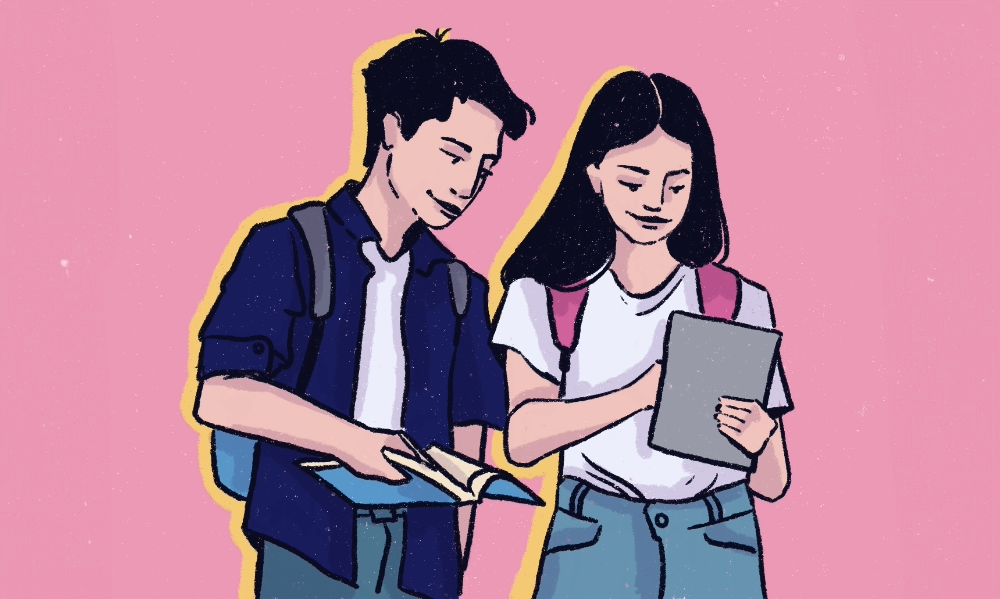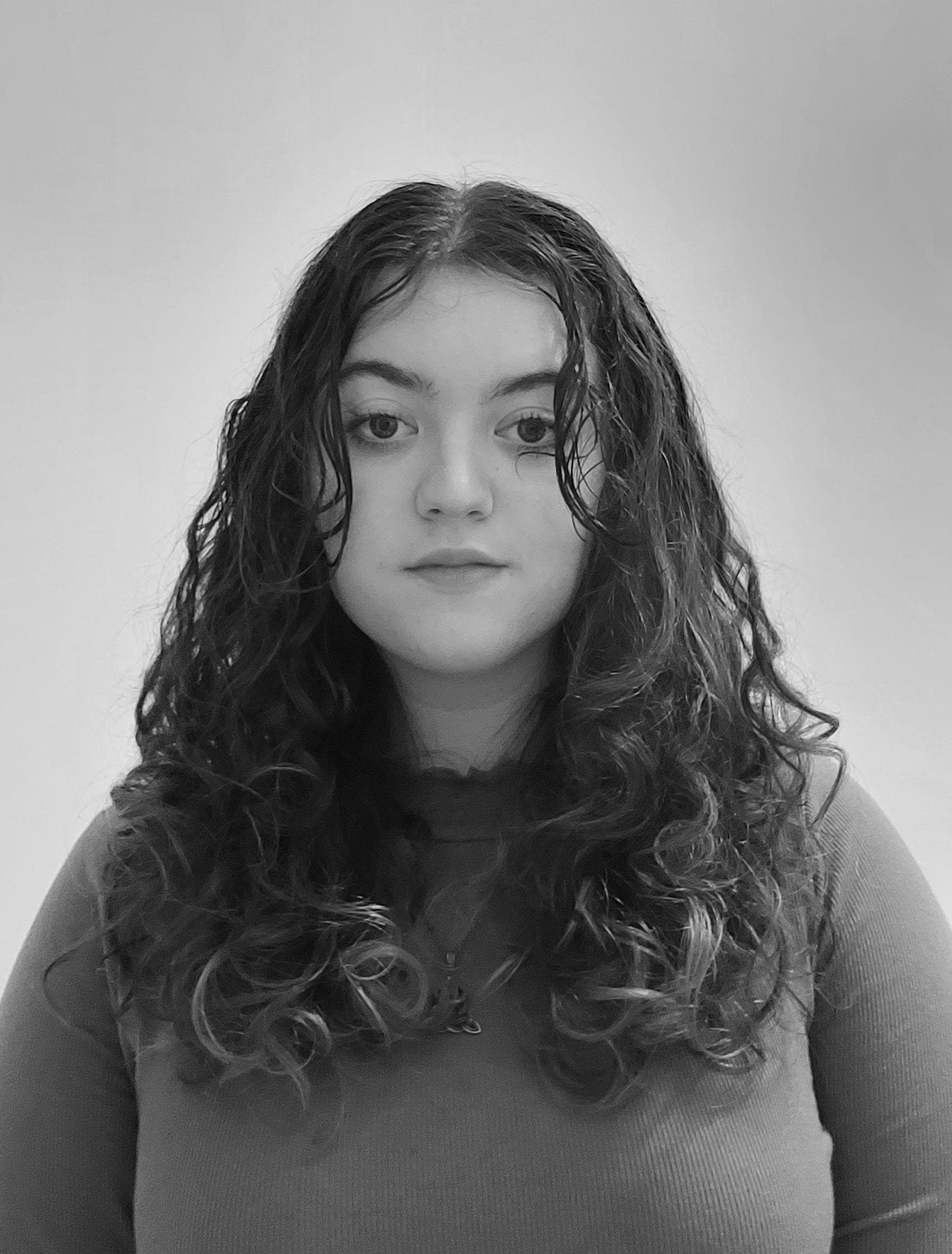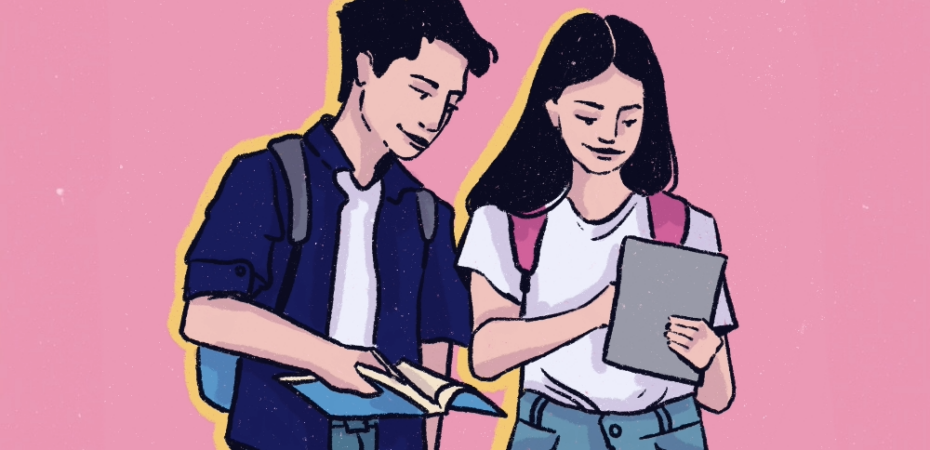
In Part 1 of two consecutive blog posts, the authors highlight student experiences of the transition from the Personal Tutor System to the new Cohort Model. They underscore the importance of extracurricular activities in fostering student engagement. Fiona McNeill is a Reader in Computing Education, Ojaswee Bajracharya is a 4th-year Computer Science student, and Charlie Myszkowski is a 2nd-year Cognitive Science student at the School of Informatics. This post belongs to the Hot Topic series: Student Partnership Agreement 2023↗️.
Sweeping changes are being implemented in student support as we move from the old Personal Tutor (PT) system to the new cohort-based approach. In this model, all students are paired with a Student Advisor (SA) and a Cohort Leader (CL). In the School of Informatics, we moved all our incoming students (UG1 and MSc) to the new model in 22/23, and now, in 23/24, we have moved entirely to the new model.
We did some research with our students – both students who were in first year in 22/23, and hence experienced the new system, and students who were leaving the PT system. Towards the end of AY22/23, we interviewed 12 students in the former group (referred to as SA group) and 14 in the latter (referred to as PT group). Here, we reflect on their views and consider how our research findings should factor into our new student support model.
Experiences of support in the different systems
Most students in the SA group knew who their SA was, and several had positive interactions with them. However, a couple of students did not know who their SA was or how to find them. No students reported negative experiences with their SA. In contrast, the PT group had very mixed experiences with their PTs. Several reported strong connections, and felt their PT had been extremely helpful, but several said their PTs, and those of many of their friends, were highly unresponsive. Some reported feeling concerned about “bothering” or “wasting time” for their PT when they had questions, a concern which did not appear with SAs. Several had been assigned more than one PT, with one student having three PTs over their time. This led to lack of consistency and confusion. Where PT students did get good support, they felt their PTs were able to support them over all necessary topics, and their expertise in courses and programmes was particularly valued.
The move from a PT system to an SA system thus seems to offer significant benefit in terms of consistency of experience for students. As student interaction is the focus of the SA’s job, they have better availability, and are less likely to switch frequently during a student’s time in the School. PTs can give the impression – either through preconceptions of students or through the PT’s own behaviour – that they have better things to do than support students, and this does not seem to be an issue with SAs. On the other hand, SAs are less able to offer course-specific input, and will need to work with Cohort Leaders (CL) to ensure students have access to this. Interestingly, CLs did not factor at all in students’ discussion of their support structure.
Relationships with academics
Some of our SA group felt their SA knew who they were, but only a few in this group had developed a relationship with an academic, to the extent that they would expect this academic to know who they were. The fact that they were all first years and in large classes is a factor here. Those that did achieved this academic relationship did it largely through engaging with non-teaching small-group and extra-curricula activities. This was echoed from some of our PT group, who felt their PT did not know who they were, but other students had developed good relationships with them. Students in fourth or fifth years mostly cited their project supervisor as the academic who knew them best – unsurprisingly, as they will have had the most contact with them.
Most students said that they wanted to have relationships with academics and were bothered that no academic knew who they were (where this was the case), but a few said it didn’t matter. Most said they had no idea how to begin to build such relationships.
Extra-curricular activities that are valued
We spoke to both groups about their engagement with extra-curricular activities, including cohort activities (for the SA group), societies and other activities. We asked both groups to consider what they thought the school should provide here, and what they wanted to engage with.
Most students focussed on developing skills relevant to their degrees, such as additional programming languages and study groups. Hackathons were the most mentioned activity, followed by careers-related events and tech shows. Understanding more about what was going on in the school, for example, finding out about the cutting-edge research Informatics academics are doing, was also valued. Most students felt they were not really part of the school, and would value feeling more included. Other activities mentioned included social events that involved mixing between staff and students, opportunities for lower-year students to mix with and hear from higher-year students, and hearing from people in industry and especially from alumni.
Although activities such as Hackathons were very popular, other students said they thought Informatics-related activities were too focussed on coding and competition. They suggested it was important to include co-curricular activities that reflect the breadth of Informatics and Informatics-related jobs, and valued collaborative experiences over-competition.
The peer support systems (InfPALS and InfBase) were cited multiple times as something that was valued, with later-year students suggesting it would be good if this continued beyond second year. Many students engaged with student societies – mostly within the school, but some showing a preference for engaging with non-Informatics activities.
Reasons for (non) engagement with extra-curricular activities
Engagement with non-course-related activities is something we have been struggling with in Informatics. One purpose of doing this research was to understand how to better engage our students with activities we felt would help them. Providing activities that students are interested in is clearly the first step to improving attendance, but is not the only factor. We found some other influencing factors below:
-
- Finding time to attend sessions
Students are very busy, especially those with part-time jobs. Timetabled sessions sometimes came at times they couldn’t make, or too close to deadlines or exams. Even if they were able to make a session, students showed reluctance to use their valuable time to attend sessions where they weren’t that clear what they would get out of it.
-
- Creating an enjoyable atmosphere in sessions
Several students mentioned that their friends attending was a motivation to go, with others mentioning the awkwardness of sessions when there are too few students attending, activities were not well organised, or interactions were forced and awkward. A recurring theme in both groups was the benefits of group work. If students are put into groups with a clear objective and an activity to work towards that, they feel that this creates a more natural environment for interaction.
-
- Communication about events
We have mostly been using email for this, which seems to be inadequate. Several students mentioned not knowing what was going on, being overwhelmed with confusing emails, too much going on to keep track, and so on. Some pointed out the highly effective use of social media by some societies.
-
- Free food – especially pizza, was mentioned by many students as an incentive to attend events.
In Part 2 of this blog post, the authors will share their reflections and lesson learned from their research.
 Fiona McNeill
Fiona McNeill
Fiona is a Reader in Computing Education in Informatics. My research focusses on access to CS and STEM education for young people from diverse backgrounds, and on student support in university.
 Ojaswee Bajracharya
Ojaswee Bajracharya
Ojaswee is a 4th year Computer Science student. She is an Informatics Student Ambassador and has contributed to various societies and initiatives, including serving as the Treasurer of the Edinburgh University Programming Society from 2022-2023 and as the Director of Hello World Hack 2023. Ojaswee’s primary interest is in software engineering, but she also has a strong interest in enhancing the student support system and improving the overall informatics student experience.
 Charlie Myszkowski
Charlie Myszkowski
Charlie is a 2nd year Cognitive Science student. He is Co-President of TEDxUniversityofEdinburgh, a student society, and a Student Content Creator for the School of Philosophy, Psychology, and Language Sciences. His interests lie in promoting the wellbeing of students, their confidence in sharing their ideas, and in improving the university experience for him and his fellow students.
Cover image original illustration by:
 Aoife Céitinn
Aoife Céitinn
Aoife is an Irish student studying Classics and Linguistics here in Edinburgh. Aoife loves illustrating in free time and working with gouache, lino, and digital art.


